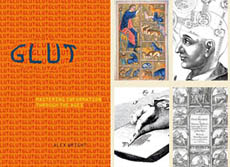tell it, ted
January 8, 2003
a feisty little rant from Ted Nelson, hypertext pioneer and, according to Tim Berners-Lee, progenitor of the World Wide Web.
from I Don't Buy In:
The Web isn't hypertext, it's DECORATED DIRECTORIES!
What we have instead is the vacuous victory of typesetters over authors, and the most trivial form of hypertext that could have been imagined.
The original hypertext project, Xanadu®, has always been about pure document structures where authors and readers don't have to think about computerish structures of files and hierarchical directories. The Xanadu project has endeavored to implement a pure structure of links and facilitated re-use of content in any amounts and ways, allowing authors to concentrate on what mattered.
Instead, today's nightmarish new world is controlled by "webmasters", tekkies unlikely to understand the niceties of text issues and preoccupied with the Web's exploding alphabet soup of embedded formats. XML is not an improvement but a hierarchy hamburger. Everything, everything must be forced into hierarchical templates! And the "semantic web" means that tekkie committees will decide the world's true concepts for once and for all. Enforcement is going to be another problem :) It is a very strange way of thinking, but all too many people are buying in because they think that's how it must be.
There is an alternative.
Markup must not be embedded. Hierarchies and files must not be part of the mental structure of documents. Links must go both ways. All these fundamental errors of the Web must be repaired. But the geeks have tried to lock the door behind them to make nothing else possible.
We fight on.
More later.
I love the phrase "vacuous victory of typesetters over authors."
File under: User Experience
_____________________« why i'm glad to be a eukaryote | Bucky! The Musical »
GLUT:
Mastering Information Through the Ages
New Paperback Edition
“A penetrating and highly entertaining meditation on the information age and its historical roots.”
—Los Angeles Times
